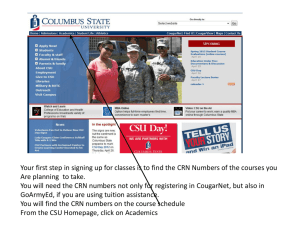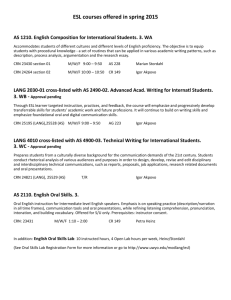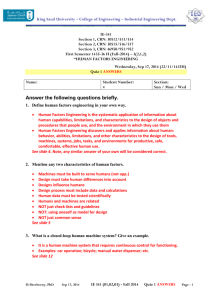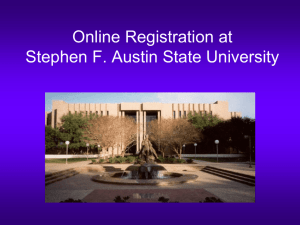Christopher Noble Technology Licensing Officer
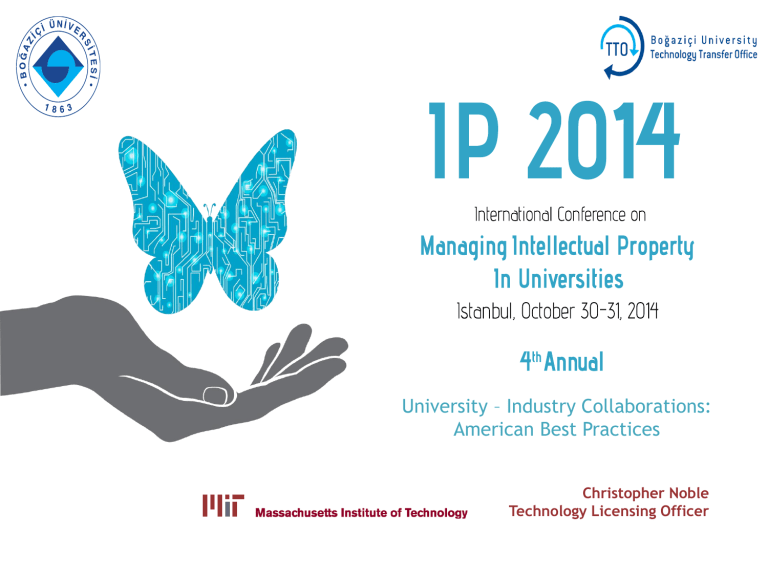
University – Industry Collaborations:
American Best Practices
Christopher Noble
Technology Licensing Officer
Christopher Noble
Technology Licensing Officer
Massachusetts Institute of Technology
E-mail: crn@mit.edu
Christopher Noble is MIT’s Licensing Officer for energy technology. His responsibilities include the intellectualproperty terms of sponsored research, evaluation and patenting of MIT inventions, IP marketing and negotiation of commercial licenses with startups and established companies. He previously worked for over 30 years in general management and M&A for energy and technology companies. Chris has experience as a technology entrepreneur, is the lead inventor on two issued patents, has raised and negotiated multiple VC financings as advisor to four early-stage companies, and has served on the Board of private technology companies and non-profits. He lived and worked in South America and Europe and is fluent in French and Spanish. Chris is Assistant Vice President of the Association of University Technology Managers, lectures internationally, and advises universities in developing economies on IP policy, management and licensing. Chris is a recipient of the Licensing Executive Society Deals of
Distinction award. He has a B.Eng. from McGill University and an M.S. in Management from MIT.
CRN 10/30/14 #2
“Technology Transfer” from the university to industry occurs in many ways
• The Graduating Student
• Publications
• Collaborative/sponsored research with industry
• Outside Consulting by faculty
• University seminars/courses for industry
• And… Intellectual Property licensing!
CRN 10/30/14 #3
Value of university IP to the university:
• Helps deploy university inventions in society
• Attracts research sponsors, and employers for graduating students
• Attracts entrepreneurial faculty and students
• Secures freedom of research
• Regional and industrial development
• Oh yes… also earns money for the university?
CRN 10/30/14 #4
Value of university IP to the licensee:
• Proof-of-concept reduces risk and development time
• IP blocks competition
• Broadens licensee’s product portfolio
• Door to future collaboration with university researchers
• The university’s prestige and credibility
• Training and motivation for licensee’s staff
• Often a key to raising money for startup companies
CRN 10/30/14 #5
Companies have a range of licensing strategies
Part of company’s overall IP portfolio; often defensive in established market.
Non-Exclusive License
15%
46
48%
146 37%
115
MIT research is complementary to company’s own
(exclusive) research
Differentiation against competitors
Important new product area for a growing company
Startups Other Small Co.
Large Co.
Exclusive License
21%
22 41%
43
38%
39
Foundational company technology; market-maker.
Total licenses, 2010-2013
CRN 10/30/14 #6
So, which terms have value in university licenses?
• Investment and commercialization diligence terms
• Modest but uncapped royalties proportional to IP value-added
• Sublicense rights? -- for exclusive licenses only
• Enforcement rights? – also for exclusive
• Terms that are easy to audit
• Startup? Equity; dilution-protected until working model;
– and Participation Rights
• Prospects for future sponsored research
• Trade secrets? No, not our charter
• No branding or warranties
CRN 10/30/14 #7
Licensing to startups:
What about Equity?
• Startups are cash-poor
• Equity provides a return if licensed technology fails but company succeeds with something else; or if company changes strategy away from foundational IP.
• Determining fair anti-dilution and down-round protection?
• How about cash investment by the university?
– Better approach: Participation Rights
CRN 10/30/14 #8
Entrepreneurship in the university – why is everyone talking about it?
• Entrepreneurial success – every university president wants the next Google or Facebook
• Commercialization is more effective with the inventors involved
• E conomic “ecosystem” development around the university
• Entrepreneurship reputation attracts entrepreneurial faculty and students to the university
But – how will the industrial research sponsor benefit from entrepreneurship in the university?
CRN 10/30/14 #9
University entrepreneurship is an opportunity for the industrial sponsor
•
Entrepreneurial faculty and students are motivated to conduct industrially-relevant research.
• Faculty who are also startup company founders can apply that experience to their industrial-sponsor relationships.
•
Commercialization is often more effective with the inventors involved.
•
Industrial sponsors are exposed to the entrepreneurial ecosystem of the university: potential partnerships and even acquisitions of spinout companies.
• but… industrial sponsors are legitimately concerned about their funded research going “out the back door” with startup companies. Thus clear and consistently-applied IP policies are extremely important.
CRN 10/30/14 #10
Industrial sponsors can collaborate with university startup companies
For example: the sponsored startup model:
1.
Industrial research sponsorship at the university, leading to new IP;
2.
Spinout of a startup company based on the IP results of the research; discussed at the initiation of the research.
3.
Industrial sponsor co-invests alongside VCs in the startup company, rather than taking a commercial in-license to the project IP.
4.
Investment is combined with a commercialization partnership, and potentially a buyout option.
CRN 10/30/14 #11
Thank you!
Christopher Noble
Technology Licensing Officer
Massachusetts Institute of Technology
E-mail: crn@mit.edu


